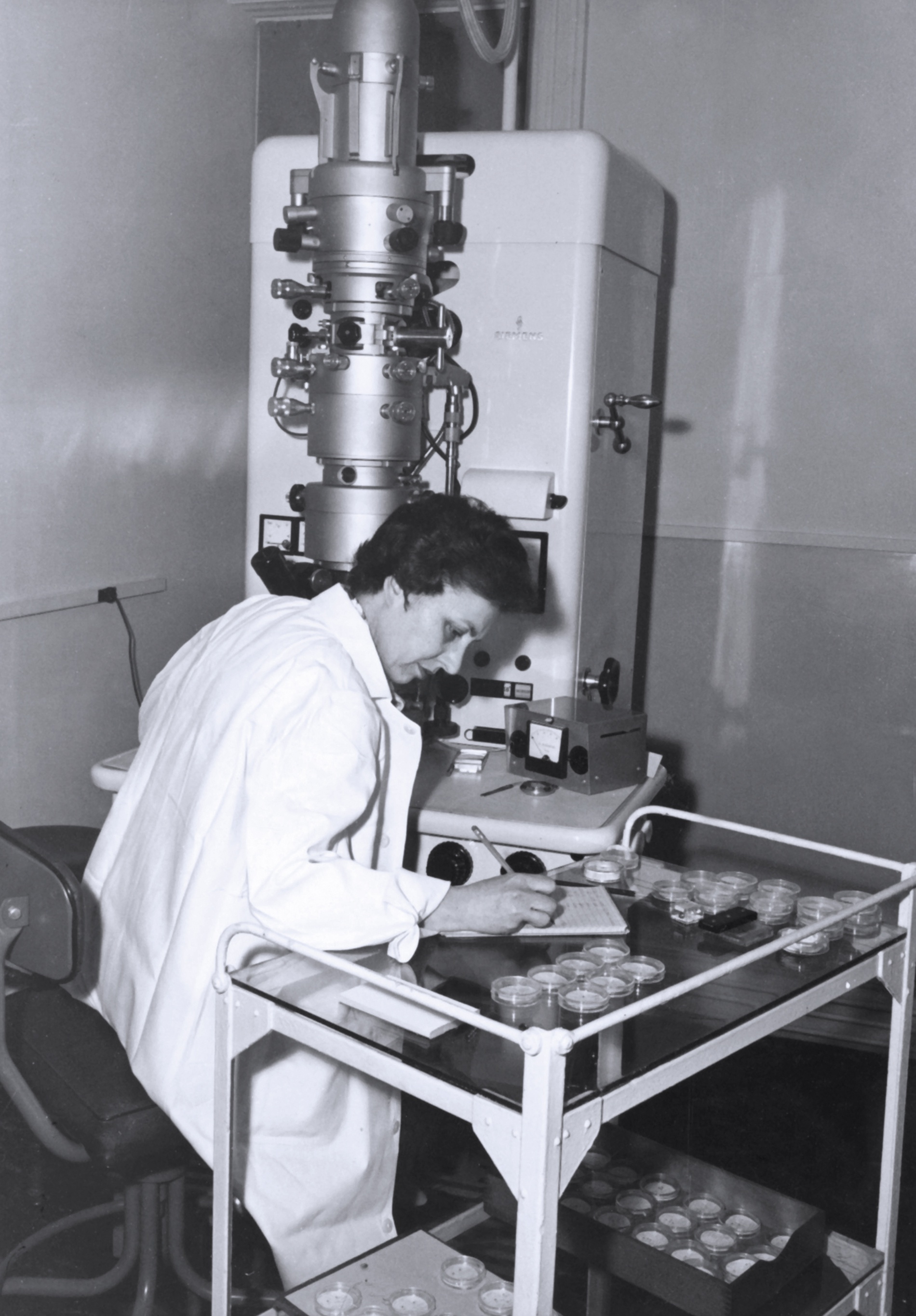Her accomplishments were remarkable: innovative scientist, dean of biology, a member of President Ford’s Committee on Science and Technology. The woman who wore these achievements gracefully was Elizabeth H. Leduc, known to practically everyone as “Dukie.”
When I was a new assistant professor on campus in 1974, I was in awe of Dukie, who was one of the founders of modern cell biology and Brown's dean of biology. The prospect of teaching with her could have been daunting. But Dukie immediately put me at ease—as she did everyone. She was always ready to praise a colleague's lecture or seminar and to offer encouragement when a paper or grant proposal had been turned down.
Dukie took delight in many things: an elegant experiment, fine food, travel, and good company. When she was in her mid-70s, we enjoyed hiking together around Block Island. On another occasion we attended a celebration of horror writer H.P. Lovecraft at his grave in Providence's Swan Point Cemetery. Everyone else present seemed to have stepped from one of Lovecraft's stories: Goths dressed in black, with an assortment of tattoos and body piercings. Boom boxes played haunting music. Dukie loved it.
Dukie spent her childhood in Vermont and graduated from the University of Vermont in 1943. She obtained a master's from Wellesley and a PhD from Brown, where she also held a National Institutes of Health postdoctoral fellowship from 1948 to 1949. She taught anatomy at Harvard Medical School from 1949 to 1953 and then returned to Brown for the remainder of her career
And what a groundbreaking career it was: In 1964 she was named a full professor of biology—the third woman to attain that rank in the 200 years of Brown's existence, and the first in biology. In 1975 she was appointed Frank L. Day Professor of Biology.
From 1973 to 1977, Dukie served as a dean of biological sciences. During her tenure the Division of Biology and Medicine prospered. While an administrator, she also taught a large course in histology, continued her research, and was appointed by President Gerald Ford to the President's Committee on Science and Technology—the only woman on a nine-person committee charged with reviewing the entire structure of federal science. It was, in Dukie’s words, “a mountainous job”
Dukie’s own research focused on the structure, function, and pathology of the liver. She helped develop the technique of cytochemistry, which enables scientists to identify the precise location of specific molecules within cells. With Wilhelm Bernhard, she pioneered the use of water-soluble embedding media and ultrathin frozen sections.
Dukie’s collaboration with Bernhard was part of a wider collaboration with investigators at the Institut de Recherches Scientifiques sur le Cancer at Villejuif, France. Dukie described the institute as "a little scientific NATO" and relished the two summer months she spent there annually from 1959 until the mid-1980s. Her fluency in French led to another responsibility at Brown: she examined doctoral candidates in biology to determine their competency in French. Well into her retirement she continued to publish papers.
Brown’s Division of Biology and Medicine has named two important awards after her: the Elizabeth Leduc Prize Fund given each year to a graduating student who has done outstanding research in experimental biology or cell biology, and the Elizabeth Leduc Award for Excellence in Teaching in the Life Sciences. Additionally, the University's bioimaging facility bears her name.
Dukie traveled throughout the world and used to regale us over coffee with stories of what she had seen and done. A reporter once inquired whether her use of the liver as an experimental system had affected her culinary appreciation for this organ. Her reply was characteristic. “I love it,” she said. “There’s a little restaurant in Paris .... ”
Dukie died January 30, at age 88. To mark her fondness for liver, her friends, colleagues, and former students were served pate at the reception that followed her March 24 memorial gathering. It was just the sort of occasion Dukie would have enjoyed.
Peter Heywood is a professor of biology.





